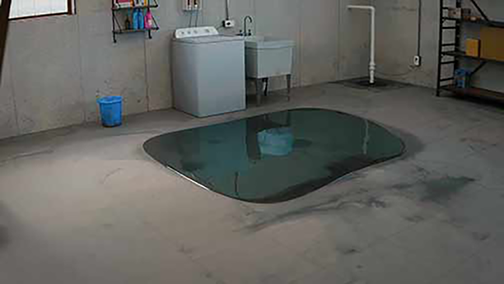
Drains that refuse to work as they should are one of the worst problems in your home, says Liberty Services.
Imagine the distress of flushing a toilet and watching the water rise inside the bowl instead of flowing away.
Or the disgusting experience of having foul-smelling sewer gases oozing from your sink.
These two problems have one common origin: symptoms of a clogged sewer line.
What should you do when facing these or other symptoms of a clogged sewer line in your home?
What to do if your sewer line is clogged
If you think your sewer line is clogged, take the following steps:
- Do not flush the toilet
If your toilet is overflowing due to a problem in your sewer line, flushing it will make the toilet spill its contents on your flooring. That will increase the cost of fixing the problem.
- Shut off the water supply
Depending on the extent and location of the problems, you may need to shut off the water supply to the affected fixture or your entire home. Turning off the water supply will help you arrest the situation.
- Call your plumber at once
Although there are things you can do to prevent sewer line clogs in your home, those steps are ineffective in an emergency. If your drains are overflowing, it is too late for DIY fixes. What steps will the plumber take?
- Sewer camera inspection
To pinpoint the exact origin of the problem, the plumber may first have to conduct a sewer camera inspection. This step will also help them determine the best way to solve the problem.
- Sewer rodding
Your plumber may use this drain-cleaning method to fix the problem in your sewer line. Sewer rodding is done by inserting a flexible hose with a grasping hook or cutting head into the sewer line. It is used to dislodge the clog.
- Hydro-jetting
Alternatively, the plumber can clear the clog by hydro-jetting the sewer line. That involves using high-pressure water to blast the sewer line. The water is delivered into the line by a flexible hose with a steel nozzle.
- Preventing a reoccurrence
Finally, the plumber will explain the cause of the problem and advise you on steps to avoid a future recurrence. Here is a list of the most common reasons a sewer line becomes clogged.
Why your sewer line is clogged
A clogged sewer line may be due to the habits of the people living in the home. It could also be due to factors outside the control of the home’s residents.
- Dumping FOGs into the drains
If FOG (fat, oil, and grease) is frequently flushed into the drains, the sewer line will eventually clog. Fats, oils, and grease congeal into a solid, sticky mass inside the cooler environment of a sewer line.
- Trashing paper products in the toilet
Putting paper towels, wipes, feminine hygiene products, and diapers into your toilet will cause the sewer line to clog. The only things that should go into your toilet are human waste and toilet paper.
- Hair and soap scum
Soap scum forms when hard water comes into contact with soap. If hair and other debris are allowed to enter the shower drain, they can combine with soap scum to form hard, insoluble masses that can block the sewer line.
- Food wastes
Never dump eggshells and coffee grounds into your drains. Starchy foods like mashed potatoes, rice and stringy veggies like celery should not be disposed of in the drains. Also, avoid putting cat litter in your drains.
- Foreign objects
Small objects like toys may fall into your toilet and enter the sewer line. If they become wedged inside the line, they will slow the water flow and trap any debris inside the wastewater.
- Tree root intrusion
Tree roots may grow around a sewer line and cause parts of it to dip, eventually leading to clogs and blockages. Tree roots can also enter a sewer line via a weak section of the pipes. That will also result in sewer line clogs.
- Soil movements
If the soil around a sewer line shifts, the pipes will lose their support and collapse. Soil movements are often caused by heavy rains, flooding, earthquakes, and sinkholes. Underground water line leaks may also cause this problem.
Knowing the root causes of sewer line clogs in your home will not stop the problem from happening. Avoid habits that predispose your sewer line to clogs and blockages. Additionally, you also need to monitor the health of your sewer line by:
- Conducting yearly sewer camera inspections
- Hydro-jetting the line every year to prevent buildup
Lastly, you need an experienced plumber to help you stay up to speed with the needs of the sewer line. A good plumber can preempt the problems in the sewer line and help you solve them quickly. That will positively impact both the performance and longevity of your sewer line.


